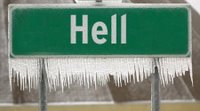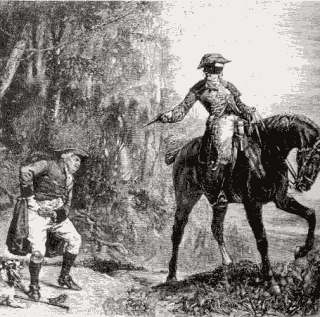"More tellingly, it provides a case study in what happens when competitive forces are unleashed and markets are allowed to operate more freely. And while some drivers are worse off, the vast majority of consumers have gained from the changes... Insurance regulators say more than 75 percent of New Jersey’s drivers are now paying less for auto insurance and that further reductions are expected...No, that's not from a daily article on the Mises blog; would you believe it's actually in the NY Times? (and it's not written by John Tierney)
Since the mid-70’s, auto insurance prices in New Jersey had been higher than anywhere else in the country. But even so, insurers contended that they could not turn a profit.
Trying to keep insurance affordable and available, officials layered on regulations. With competition limited, lower-cost insurers simply avoided the state."

This good news comes after years of stifling regulation designed to "save" the lowly consumer from the depradations of the auto insurance industry.
Here is another interesting quote:
"As voters complained to lawmakers, regulators made it more difficult for insurers to raise rates. One consequence was that in good years insurers held off from requesting lower rates for fear that when their fortunes turned, they would not be permitted to reverse the process."Which goes to demonstrate a number of things:
1) The ballot method is vastly inferior to the market process, where each dollar is the consumers' vote to reward the efficient producers and penalize the less efficient ones. This insurance issue has been around from before I was even a remote assembalance of atoms. The market on the other hand has delivered an equitable solution in less than one year's time.
2) The political solution almost always leads to an even less efficient situation whilst decreasing the choices and freedoms of individuals and increasing the power of regulators.
3) That individuals whose freedoms are constrained are bound to act in the manner of erring on the side of caution, leading to even greater inefficiencies. For example, NJ gas stations are allowed by law only one price change per day (once per week if located on the highways), and will thus tend to pricing their gas higher than the expected replacement cost, rather than take the risk of offering an unmutable lower price and not being able to afford the next delivery. Had the state not interfered, they would intially price their gas at what they believe will be sufficient to cover replacement costs, and upon better information, they will raise or lower their prices accordingly.
4) The regulatory hell had pretty much cartelized the industry to a select few players -- exactly two, if I remember correctly.
The next quote makes me think of the nationalised Canadian healthcare system:
"At the same time, because the rates were capped and insurers were required to provide coverage to all but the most horrendous drivers, the companies said they were often selling insurance at less than their estimated costs. The more coverage they sold, the insurers contended, the more money they lost. So they tried to keep good old customers, but avoided new ones. They often let their phones ring off the hook."I do think there are more things we can do to even help the consumer even more;
-Privatize the roads (and truely privatize them!)
-Eliminate the regulatory requirement for driver's liabilty insurance

The insurance mandate gives the insurance industry some leverage over the consumer, because after all if you would like to drive a car on public roads, you are required to have insurance. Contrast that to an environment where the decision to purchase auto insurance stems solely from the individuals desire to decrease personal monetary risk, and not because you are forced to fork over for it. The insurance bagman is rendered harmless when there is no highwayman pointing his gun at you for your "protection".
In closing, I don't know if private road owners are likely to mandate auto insurance coverage, but I'm fairly certain that under government-owned road conditions and maybe in the hypothetical privatized-roads case, auto insurance rates would be even lower, and might even be priced into the road access charge.







































No comments:
Post a Comment